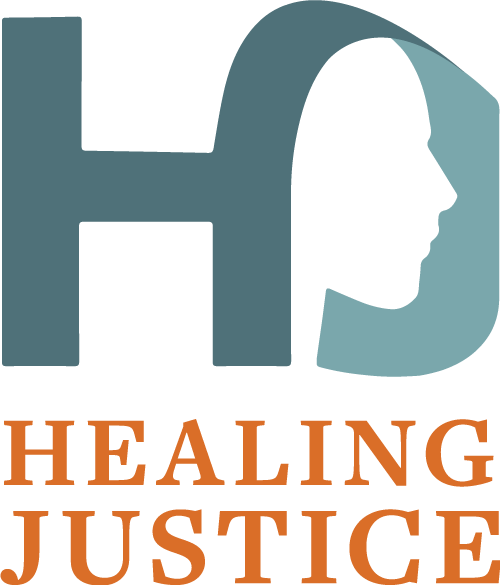New Resources for Helping Crime Victims
As 2019 winds down, and the holidays are upon us, we are still quite busy here at Healing Justice. This past weekend, we hosted our final Healing Justice Retreat of 2019. Last week, we gave a presentation at the national training conference of the National Center for Victims of Crime (NCVC) and released the first of three sets of resources developed under our grant project with the US Department of Justice’s Office for Victims of Crime. It is an exciting time for our work!
In the midst of our full schedule, we are filled with gratitude for all of the support we received on Giving Tuesday! We at Healing Justice - and all of those we serve - are deeply grateful for your support.
For a detailed summary of our new resources, see our news release below:
New Release: Post-Conviction Survivor Resources
We are delighted to announce that Healing Justice released its first set of resources under our grant project with the US Department of Justice’s Office for Victims of Crime. We officially introduced the new resources last week at the national training conference of the National Center for Victims of Crime (NCVC). Healing Justice’s Executive Director Katie Monroe and Director of Programs, Brittany Shefter, were joined by Miriam Woodruff, formerly of NCVC, for a panel entitled, “Responding to Original Victims in Wrongful Conviction Cases.”
These critical new resources will assist victim service providers and other criminal justice allied professionals with providing victim-centered and trauma-informed notification and support in cases involving post-conviction claims of innocence and exonerations. They will also allow us to expand our reach to crime survivors and victims’ families around the country and offer more individualized peer-to-peer support. Now available are:
Guiding Principles
Guidelines for Practitioners
Sample Agency Policy
Sample Information Packet for Victims
These important new resources are intended to be used together, with the Guiding Principles setting forth the overarching values and goals, and the Guidelines serving as a practical checklist. The Sample Agency Policy and Sample Information Packet for Victims are specific tools that can be adapted by individual agencies for use in the field. Together, these resources will enable help victim service providers and other criminal justice professionals, such as police, prosecutors, and judges practitioners to ensure that their services are victim-centered and trauma-informed by:
Demonstrating respect for and sensitivity to victims throughout the entire criminal justice process, including post-conviction;
Providing victims with agency, choice, and control;
Mitigating the emotional distress experienced by victims in cases involving post-conviction claims of innocence and exonerations;
Ensuring victims’ safety and security;
Regaining victims’ trust in the criminal justice system; and
Re-engaging victims in future proceedings.
By actively using these resources, service providers and justice professionals will minimize the re-victimization and re-traumatization experienced by crime survivors and victims’ families as well as help to rebuild their trust in the criminal justice system. It will also increase their ability to meaningfully engage them in the post-conviction process, resulting in more positive outcomes for all as they navigate the complexities of post-conviction claims of innocence and exonerations.
In addition to the resources released last week, Healing Justice will be releasing two more sets of unique resources under this project:
Peer-to-peer videos for crime survivors and victims’ families, to help validate and normalize their experiences and feelings and provide direct peer support.
Sensitivity guidelines for the media and public awareness materials aimed at changing the narrative around how survivors and victims’ families are seen and treated in these cases.
All three sets of resources will be housed on a new website, and in February we will host a national webinar to provide training on how to use the new resources and tools in communities around the country. Stay tuned for more details!
